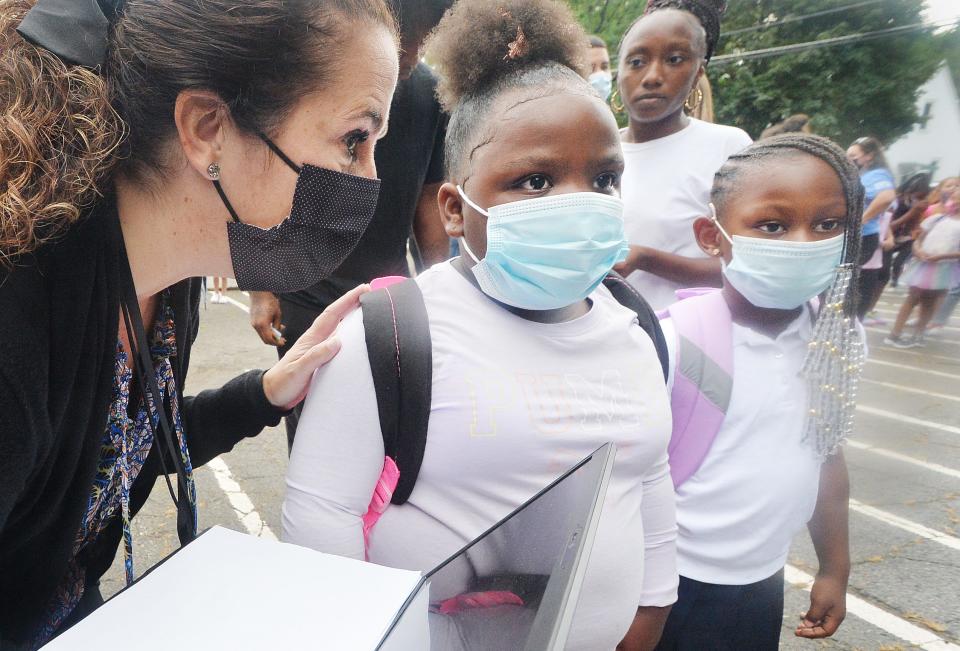In 1894, PA Supreme Court ruled in favor of smallpox shots for students. What does it mean today?
The disease was frightening. It had turned into a scourge, a pestilence that was sickening scores of people and sowing fear and uncertainty. But scientists and physicians had a weapon in the fight: a vaccine.
Much of the populace embraced the shot, though others decried it as unproven and risky.
As is often the case in the United States, the courts got involved.
One of the major questions was whether a school district in Pennsylvania could prohibit an unvaccinated student from entering a building and going to class.
The year was 1894.
The disease was smallpox.
The ruling came from the Pennsylvania Supreme Court on July 11, 1894. In a unanimous decision, it affirmed a school district's authority to require smallpox vaccinations.
"Is the regulation now under consideration a reasonable one?" the Supreme Court justices asked in their ruling.
They decided that it was, and their decision has never been overturned.
How the courts ruled on vaccinations nearly 128 years ago makes for fascinating Pennsylvania legal history.

History of doubt: Skeptics questioned vaccines long before COVID, despite health gains
The decision also provides insight into what has become a defining debate of the past two years: How far can the government, including school boards, go to protect the community during a public health crisis?
Parent vs. school board
In 1894, a father sued the School District of the City of Williamsport. He claimed that the district had unlawfully banned his son from attending class because he was not vaccinated for smallpox, as the Williamsport School Board required.
The father, Andrew J. Duffield, said the Williamsport School Board was out of line. He had lost his case before a judge on the Lycoming County Court of Common Pleas, prompting him to appeal to the state Supreme Court in the 1894 case, called Duffield v. School District of the City of Williamsport.
The father, citing the federal and state constitutions, claimed the vaccination requirement violated his parental rights in deciding how best to care for the health of his son.
"While the board may make reasonable regulations to preserve the order of the schools, and to protect the health, lives and limbs of the children while they are under its control, it is not a conservator of the public peace nor of the public health," the father's lawyer, W.H. Spencer, said in his argument before the state Supreme Court, according to official record of the case. "Over the children it has but a limited control, derived entirely from the parents, viz: that of restraint and correction and then only for educational purposes."
"For all general purposes," Spencer also argued, "the parent's control follows the child into the schoolroom."
Sound familiar?
The lawyer for the Williamsport School District emphasized that the school directors approved the vaccination requirement to safeguard the entire community against the "grave danger" of smallpox. The lawyer, Frank P. Cummings, said that rights of the community as a whole had to be considered.
"Plaintiff contends that the personal liberty of the individual is encroached upon by this act of defendant," Cummings argued. "In this case the personal liberty of the entire school is sought to be destroyed by the one against the many.
"It was never intended that the safety of the community should be jeopardized to satisfy the whim of a small minority."
Sound familiar?
Forgotten plague: The story of Erie and the 1918-19 flu pandemic
An issue of discretion, not science
In ruling for the Williamsport School District, the state Supreme Court acknowledged that some people questioned the effectiveness of the smallpox vaccine.
"Vaccination may be, or may not be, a preventive of smallpox," according to the court's opinion, by Justice Henry W. Williams.
"That is a question about which medical men differ and which the law affords no means of determining in a summary manner. A decided majority of the medical profession believe in its efficacy. The municipal regulations of many, and I have no doubt of most, of the cities of this state and country, provide for it.
Dahlkemper's decision: Erie County mandates face masks at public, private schools
"In the present state of medical knowledge and public opinion upon this subject it would be impossible for a court to deny that there is reason for believing in the importance of vaccination as a means of protection from the scourge of smallpox."

However, Williams wrote, the role of the state Supreme Court in the case was not to weigh in on science, but to determine whether the Williamsport School Board acted properly and within its discretion.
Williams wrote:
"It is not an error in judgment, or a mistake upon some abstruse question of medical science, but an abuse of discretionary power, that justifies the courts in interfering with the conduct of the school board or setting aside its action."
'The good of many'
Williams returned to the core question.
"How far shall this right to exclude one for the good of many be carried?" he wrote. "That is a question addressed to the official discretion of the proper officers; and when that discretion is honestly and impartially exercised the courts will not interfere."
Williams wrote that the county judge who had ruled in favor of the Williamsport School District's vaccination requirement had "reached the correct conclusion."
Upset parents: Pa. school boards bearing brunt of anti-mask parents' anger. Hear what the sides say
Much has changed since 1894. But as long as school boards take action to respond to public health crisis, the nearly 128-year-old decision in the case of the smallpox vaccine will continue to speak to us in frightening and uncertain times.
Contact Ed Palattella at epalattella@timesnews.com. Follow him on Twitter @ETNpalattella.

This article originally appeared on Erie Times-News: Smallpox shots: PA Supreme Court OK'd it in 1894. What does it mean today?

